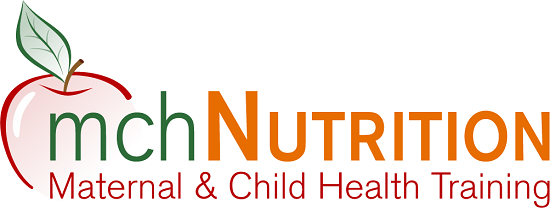
Ruth Wooten, an alumnus of the Maternal and Child Health Leadership traineeship, is a registered dietitian nutritionist and completed her Master’s program in Public Health Nutrition at the University of Tennessee. This blog post describes her recent publication/thesis research.
Upon entering graduate school, I was not convinced that I wanted to pursue the thesis track for my degree. I certainly found research interesting but was not positive that I wanted to tackle such a daunting task and bury myself in one specific topic. My major professor, Dr. Betsy Anderson Steeves, had a project for our research lab that was to assess food insecurity rates on campus to contribute to a regional wide survey being administered by members of the Southeastern Universities Consortium on Hunger, Poverty, and Nutrition. I was assigned as the lead on the project and became more invested in the research. Eventually, I decided to take this research project and form it into my thesis research. Instead of only assessing food insecurity rates at our campus, I decided, with the assistance of my committee, that it would be advantageous to assess rates at the three other campuses in our university system to capture a larger population. During my first semester as a MCH Nutrition trainee (spring 2017), I attended our annual MCH grantees meeting and had several conversations with fellow trainees and directors who were assessing similar information at their universities. I was thankful to have a network of researchers pursuing a topic that could unveil information beneficial to the public health nutrition community. The MCH training grant exposed me to a community of graduate students and nutrition professionals from across the country that added value to my research process.
During the fall semester of 2017, an online survey was administered to over 38,000 students to assess their food insecurity rates as well as factors that related to their food insecurity status. We had a fairly good response rate (12.5%)1 for online surveys and resulted in a large amount of data to analyze. I analyzed data and wrote my thesis during the spring semester of 2018. After successfully defending in April 2018, I began finalizing my thesis for publication. The various tasks that I completed as a trainee were helpful in developing my skills to research, write a manuscript, and complete the publication process. Just a few months ago, we were told that the manuscript was accepted for publication. I realized that this research was important and could make an impact on a larger scale than just my department or university.
Without providing too many spoilers, the study revealed that 36% of students were food insecure, meaning that they did not have adequate access to food to live a normal life.1 Several factors were significantly associated with an increased likelihood of experiencing food insecurity, including previous food insecurity before attending college, financial factors, and self-reported grade point average.1 The full study can be found at the citation at the bottom of this post.
Since the completion of this project, several exciting things have happened on campus at the University of Tennessee, including: an on-campus task force for student hunger and homelessness, an interview with Dr. Anderson Steeves on NPR, and the implementation of the 2-item food insecurity screener on intake forms at the student health center.
1Wooten R, Spence M, Colby S, Anderson Steeves E. Assessing food insecurity prevalence and associated factors among college students enrolled in a university in the southeast USA. Public Health Nutrition. 2018. https://doi.org/10.1017/S1368980018003531

Published by